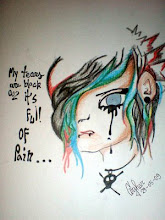|
|
Prior to the first act, an induction frames the play as a "kind of history" played in front of a befuddled drunkard named Christopher Sly who is tricked into believing that he is a lord.
In the play performed for Sly, the "Shrew" is Katherina Minola, the eldest daughter of Baptista Minola, a Lord in Padua. Katherina's temper is notorious and it is thought no man would ever wish to marry her. On the other hand, two men – Hortensio and Gremio – are eager to marry her younger sister Bianca. However, Baptista has sworn not to allow his younger daughter to marry before Katherina is wed, much to the despair of her suitors, who agree that they will work together to marry off Katherina so that they will be free to compete for Bianca.
The plot becomes more complex when Lucentio, who has recently come to Padua to attend the famous university there, sees Bianca and instantly falls in love with her. Lucentio overhears Baptista announce that he is on the lookout for tutors for his daughters, so he has his servant Tranio pretend to be him while he disguises himself as a Latin tutor named Cambio, so that he can woo Bianca.
In the meantime, Petruchio arrives in Padua, accompanied by his witty servant, Grumio. Petruchio tells his old friend Hortensio that he has come to seek his fortune "farther than at home/Where small experience grows" (1.2.50-51). Hearing this, Hortensio seizes the opportunity to recruit Petruchio as a suitor for Katherina. He also has Petruchio present to Baptista a music tutor named Litio (Hortensio himself in disguise). Thus, Lucentio and Hortensio, pretending to be the teachers Cambio and Litio, attempt to woo Bianca behind her father's back.
Petruchio, to counter Katherina's shrewish nature, woos her with reverse psychology, pretending that every harsh thing she says or does is kind and gentle. Katherina allows herself to become engaged to Petruchio, and they are married in a farcical ceremony during which (amongst other things) he strikes the priest, and then takes her home against her will. Once there, he begins the "taming" of his new wife, using more reverse psychology. She is refused food and clothing because nothing – according to Petruchio – is good enough for her. Finally, Katherina comes to understand Petruchio's methods of taming, and when they are on a journey to see Baptista, she willingly agrees with Petruchio that the sun is the moon, and proclaims that "if you please to call it a rush-candle,/Henceforth I vow it shall be so for me" (4.5.14-15). They also meet Vincentio, Lucentio's father, and Katherina eagerly agrees with Petruchio when he declares that Vincentio is a woman.
Meanwhile Bianca elopes with Lucentio, and Hortensio is persuaded by Tranio that Bianca is not worthy of his attentions. Hortensio marries a rich widow, and so in the final scene of the play there are three newly married couples at Baptista's banquet; Bianca and Lucentio, the widow and Hortensio, and Katherina and Petruchio. Because of the general opinion that Petruchio is married to a shrew, a quarrel breaks out about whose wife is the most obedient. Petruchio proposes a wager whereby each will send a servant to call for their wives, and whichever comes most obediently will have won the wager for her husband. Katherina is the only one of the three who comes, winning the wager for Petruchio. At the end of the play, after the other two wives have been hauled into the room by Katherina, she gives a speech on the subject of why wives should always obey their husbands, and tells them that their husbands ask only "love, fair looks and true obedience" (5.2.153). The play ends with Baptista, Hortensio and Lucentio marvelling at Petruchio's taming of the shrew.

